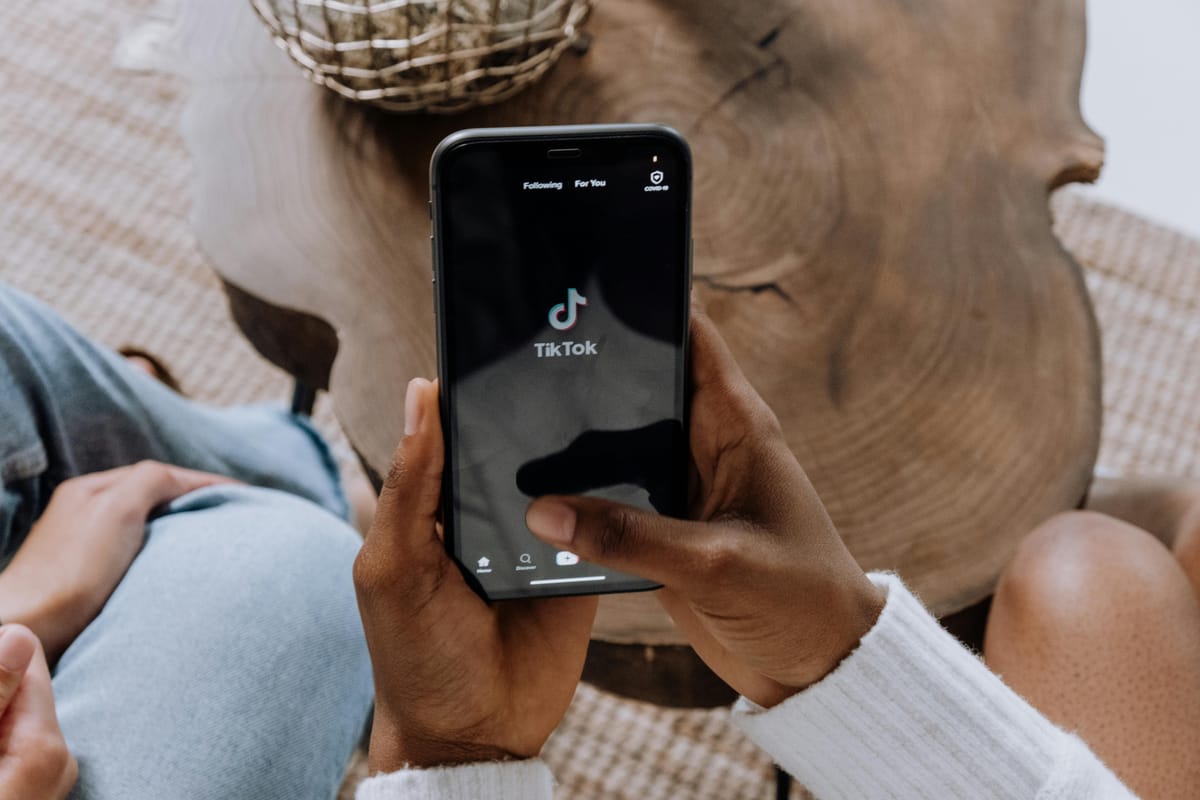How to Survive TikTok Health Advice (Without Ending Up on WebMD at 3 AM)
Is that viral TikTok health hack actually safe, or just another trend in disguise? Nearly half of the health advice on the app is false. From red flags to smart scrolling tips, here’s how to tell what’s real and what’s risky. Keep reading to learn all about it.

One minute you’re watching a cat dance to Doja Cat, and the next you're deep in #GutTok, convinced your bloating is from “parasites”. And now you're debating whether to start drinking aloe vera juice every morning.
Welcome to TikTok, where everyone is suddenly a wellness guru, and every other video is pushing a "life-changing" health hack.
So…how do you scroll smarter? Here’s your no-BS guide to navigating TikTok health advice without falling for the hype.
Know This First
Just because a health tip goes viral doesn’t mean it’s valid.
Research shows that nearly 45% of health content on TikTok is false or misleading. And when it comes to alternative medicine, it’s more like 67% inaccurate. Yikes.
How To Navigate #HeathTok in 7 Steps
It’s easy to get overwhelmed with so much health and beauty advice online. Does it work? Is this even true? Is it safe? Here are 7 steps to navigate all these doubts:
Don’t believe every white coat you see
Just because someone’s wearing scrubs or throwing around science-y terms doesn’t mean they’re legit. Check their bio.
Do they have actual credentials? Look for titles like:
- MD (Medical Doctor)
- DO (Doctor of Osteopathy)
- RN (Registered Nurse)
- PharmD (Doctor of Pharmacy)
If they’re not upfront about their background, or if you can’t find anything about them outside of TikTok... that’s a red flag. Influencer ≠ expert.
Pro tip: You can Google their name + “credentials” to see if they’re the real deal.
Watch out for wellness theatre
Aesthetic smoothie videos? Great. But does that turmeric latte actually cure inflammation or just match your feed?
Legit health info doesn’t need sparkles and trending sounds to be credible.
Real experts talk about:
- Peer-reviewed studies
- Evidence-based guidelines
- What’s realistic, not what’s dramatic
If someone’s pushing miracle cures, fast fixes, or “they don’t want you to know this” content, please scroll away.
Cross-check information
Say you see a video claiming seed cycling cured someone’s PCOS. Cool story. But before you run to the nearest flaxseed aisle, Google it.
- Check what Mayo Clinic, Cleveland Clinic, or WHO says about it
- Look for multiple sources saying the same thing
- Read beyond the headline (we know, but still)
One viral video isn’t enough. If it’s not backed by trusted organisations or licensed professionals, it’s not worth the risk.
TikTok isn’t your doctor
There’s a difference between general wellness tips (like drinking more water) and medical advice (like how to treat anxiety or manage a hormone disorder).
You can find helpful reminders and inspiration, sure, but:
DO NOT diagnose yourself or change your treatment based on a 30-second clip.
Even if someone has good intentions, they don’t know your body, your history, or your actual needs.
Disclaimers are a green flag
Trustworthy creators usually say something like, “This isn’t medical advice, talk to your doctor.”
If they don’t say that and instead act like they’re your personal health coach without knowing anything about you, that’s a big nope.
Don’t Fall for the Follower Trap
Views, likes, and shares don’t equal credibility.
Some of the worst health advice on the app is also the most viral. Misinformation is entertaining and provocative. That’s how the algorithm works.
Always prioritise credentials > clout.
Red flags to spot (and immediately swipe away from)
- “Cure your anxiety in 24 hours”
- “Doctors are hiding this from you”
- “Lose 10kg in a week with this drink”
- Fear-based messaging
- Anti-vaxx content or weird supplement pyramids
If it sounds too good (or too scary) to be true, it probably is.
For the Real Ones: If You’re a Health Pro on TikTok
We need more actual experts on the app. If that’s you:
- Keep it accurate, but relatable
- Use trending sounds wisely to reach more people, without sacrificing facts
- Debunk the BS with Stitch/Duet videos
- Always include disclaimers
Final Thoughts
TikTok is amazing for sharing ideas, finding community, and picking up wellness inspo. But when it comes to your health, it’s not the final word.
Use your critical thinking, check the source, and remember: what’s trending isn’t always what’s true.
Scroll smart. Ask questions. And when in doubt, call your doctor, not your FYP.